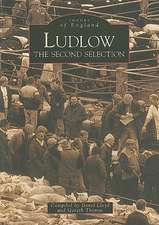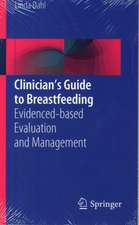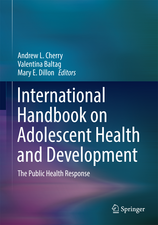Down's Syndrome Screening and Reproductive Politics: Care, Choice, and Disability in the Prenatal Clinic: Routledge Studies in the Sociology of Health and Illness
Autor Gareth M. Thomasen Limba Engleză Hardback – 2 mar 2017
In the UK and beyond, Down’s syndrome screening has become a universal programme in prenatal care. But why does screening persist, particularly in light of research that highlights pregnant women’s ambivalent and problematic experiences with it?
Drawing on an ethnography of Down’s syndrome screening in two UK clinics, Thomas explores how and why we are so invested in this practice and what effects this has on those involved. Informed by theoretical approaches that privilege the mundane and micro practices, discourses, materials, and rituals of everyday life, Down’s Syndrome Screening and Reproductive Politics describes the banal world of the clinic and, in particular, the professionals contained within it who are responsible for delivering this programme. In so doing, it illustrates how Down’s syndrome screening is ‘downgraded’ and subsequently stabilised as a ‘routine’ part of a pregnancy. Further, the book captures how this routinisation is deepened by a systematic, but subtle, framing of Down’s syndrome as a negative pregnancy outcome. By unpacking the complex relationships between professionals, parents, technology, policy, and clinical practice, Thomas identifies how and why screening is successfully routinised and how it is embroiled in both new and familiar debates surrounding pregnancy, ethics, choice, diagnosis, care, disability, and parenthood.
The book will appeal to academics, students, and professionals interested in medical sociology, medical anthropology, science and technology studies (STS), bioethics, genetics, and/or disability studies.
| Toate formatele și edițiile | Preț | Express |
|---|---|---|
| Paperback (1) | 364.80 lei 6-8 săpt. | |
| Taylor & Francis – 7 mai 2019 | 364.80 lei 6-8 săpt. | |
| Hardback (1) | 1348.12 lei 6-8 săpt. | |
| Taylor & Francis – 2 mar 2017 | 1348.12 lei 6-8 săpt. |
Din seria Routledge Studies in the Sociology of Health and Illness
- 5%
 Preț: 295.91 lei
Preț: 295.91 lei -
 Preț: 311.37 lei
Preț: 311.37 lei - 5%
 Preț: 302.23 lei
Preț: 302.23 lei -
 Preț: 327.41 lei
Preț: 327.41 lei - 18%
 Preț: 1162.84 lei
Preț: 1162.84 lei - 5%
 Preț: 364.25 lei
Preț: 364.25 lei - 18%
 Preț: 844.18 lei
Preț: 844.18 lei -
 Preț: 383.63 lei
Preț: 383.63 lei - 5%
 Preț: 364.80 lei
Preț: 364.80 lei - 18%
 Preț: 999.46 lei
Preț: 999.46 lei - 18%
 Preț: 1000.30 lei
Preț: 1000.30 lei - 5%
 Preț: 373.96 lei
Preț: 373.96 lei - 5%
 Preț: 1157.77 lei
Preț: 1157.77 lei - 21%
 Preț: 247.51 lei
Preț: 247.51 lei - 5%
 Preț: 1161.59 lei
Preț: 1161.59 lei - 5%
 Preț: 363.00 lei
Preț: 363.00 lei -
 Preț: 389.66 lei
Preț: 389.66 lei - 17%
 Preț: 278.34 lei
Preț: 278.34 lei - 26%
 Preț: 764.78 lei
Preț: 764.78 lei - 18%
 Preț: 999.02 lei
Preț: 999.02 lei -
 Preț: 389.66 lei
Preț: 389.66 lei - 14%
 Preț: 336.45 lei
Preț: 336.45 lei - 5%
 Preț: 1284.09 lei
Preț: 1284.09 lei -
 Preț: 389.38 lei
Preț: 389.38 lei -
 Preț: 389.38 lei
Preț: 389.38 lei -
 Preț: 394.19 lei
Preț: 394.19 lei - 18%
 Preț: 1057.89 lei
Preț: 1057.89 lei - 18%
 Preț: 1028.18 lei
Preț: 1028.18 lei - 18%
 Preț: 1000.27 lei
Preț: 1000.27 lei - 5%
 Preț: 369.92 lei
Preț: 369.92 lei - 5%
 Preț: 1410.27 lei
Preț: 1410.27 lei - 18%
 Preț: 1000.30 lei
Preț: 1000.30 lei - 12%
 Preț: 318.90 lei
Preț: 318.90 lei - 18%
 Preț: 1001.07 lei
Preț: 1001.07 lei - 18%
 Preț: 996.33 lei
Preț: 996.33 lei - 18%
 Preț: 1001.39 lei
Preț: 1001.39 lei - 18%
 Preț: 996.96 lei
Preț: 996.96 lei - 5%
 Preț: 453.68 lei
Preț: 453.68 lei
Preț: 1348.12 lei
Preț vechi: 1419.06 lei
-5% Nou
Puncte Express: 2022
Preț estimativ în valută:
257.97€ • 270.02$ • 214.71£
257.97€ • 270.02$ • 214.71£
Carte tipărită la comandă
Livrare economică 31 martie-14 aprilie
Preluare comenzi: 021 569.72.76
Specificații
ISBN-13: 9781138959132
ISBN-10: 1138959138
Pagini: 220
Dimensiuni: 156 x 234 x 18 mm
Greutate: 0.45 kg
Ediția:1
Editura: Taylor & Francis
Colecția Routledge
Seria Routledge Studies in the Sociology of Health and Illness
Locul publicării:Oxford, United Kingdom
ISBN-10: 1138959138
Pagini: 220
Dimensiuni: 156 x 234 x 18 mm
Greutate: 0.45 kg
Ediția:1
Editura: Taylor & Francis
Colecția Routledge
Seria Routledge Studies in the Sociology of Health and Illness
Locul publicării:Oxford, United Kingdom
Public țintă
Postgraduate and UndergraduateCuprins
Chapter 1. Introduction
Chapter 2. A Short Socio-History
Chapter 3. Hands-Off Work
Chapter 4. The Conduct of Care
Chapter 5. Constituting Risk and Disability
Chapter 6. Expectant Parents, Expecting Perfection
Chapter 7. Summary and Discussion
Chapter 2. A Short Socio-History
Chapter 3. Hands-Off Work
Chapter 4. The Conduct of Care
Chapter 5. Constituting Risk and Disability
Chapter 6. Expectant Parents, Expecting Perfection
Chapter 7. Summary and Discussion
Recenzii
"Gareth Thomas has produced a thoughtful, rich, nuanced presentation of the normalization of Down’s syndrome screening, hoping to ‘ignite more reflexive and pluralistic dialogues.’ If only that would happen – that more people read, and thought, and spoke about what it means to introduce and make ordinary prenatal screening for more of these predictable conditions. It is an urgent conversation and Thomas has pushed it along in valuable ways."
Barbara Katz Rothman, City University of New York, USA, and author of The Tentative Pregnancy: Prenatal Diagnosis and the Future of Motherhood
"Down's Syndrome Screening and Reproductive Politics takes the reader deep inside the ‘extraordinariness of ordinariness’ to scrutinize how the professional practices of midwives and sonographers trivialize the tests pregnant women, and their supporters, have for this and other disabling conditions. Based on extensive sociological fieldwork in the UK, this book provides a valuable analysis of the expert discourses that now inform contemporary reproductive politics, wherever prenatal testing is routinized."
Rayna Rapp, New York University, USA. and author of Testing Women, Testing the Foetus: The Social Impact of Amniocentesis in America
"This fascinating, timely, and highly original book presents a rich ethnographic study of Down's syndrome (DS) screening in two hospital clinics. With a focus on the routine practices and daily work through which test procedures are managed, risk assessments are communicated, and moral responsibility is assigned, we see how DS screening is simultaneously framed as mundane, low status work and as important to the process of decision-making during a pregnancy. […] Drawing on medical sociology, symbolic interactionism, and ethnomethodology, Gareth Thomas presents a convincing and compelling argument about how the downgrading of DS screening is routinely accomplished through a network of power relations, discursive accounts, and everyday talk."
Susie Scott, University of Sussex, UK
"Prenatal screening reshapes society’s concepts of what is human, normal and acceptable. It promotes the bioethical fictions that the clinic service is neutral and offers free, informed, non-directive choice. New technologies are introduced without greatly needed renewed public debate and new professional training, and Thomas lists urgent questions for public debate about the nature and purpose of prenatal care and whose interests are served by innovations. […] His book deserves to be widely read."
Priscilla Alderson, The Sociological Review
"Thomas’s book provides a fine-grained and thoughtful study of the transformation of testing for Down’s syndrome into a routine intervention and standard of care. […] Thomas’ study is an important contribution not only to the understanding of recent changes in the surveillance of pregnancies but, more generally, of patterns of incorporation of biomedical innovations into clinical practices. I strongly recommended it to all those – sociologists and anthropologists of medicine, health care professionals, activists and health care users – who wish to better understand the extraordinary transformations of ordinary medicine."
Ilana Löwy, Sociology of Health and Illness
"Thomas’s focus on medical professionals offers a refreshing contribution to the sociological literature on Down’s syndrome screening. […] [T]he book is ethnographically rich, concise, and clearly written. It will hold considerable appeal for students and scholars in medical sociology, genetics and society, and related fields."
Mara Buchbinder, New Genetics and Society
"The book offers a timely look into a case in which an emergent biomedical technology has effectively (and rather quickly) changed the standard course of prenatal care in the clinic – all the while, its seamless integration into the clinic has transpired largely devoid of public debate and scrutiny. Thomas’s major contribution with this work is to spur the reader to ask why. […] It is hard to imagine that this book will not succeed in sparking more debate."
Jennifer Kane, American Journal of Sociology
"One of the key strengths of this book perhaps relates to the way in which Thomas draws on and applies core sociological theories to prenatal screening. The book’s focus on professional accounts and the ways in which Thomas explores routine screening practice as downgraded work is also particularly novel, offering a significant contribution to the field."
Kate Reed, Sociology
"This [book] provides fertile ground for a number of unique observations that are rarely wrestled with in the literature surrounding prenatal screening and Down’s syndrome. […] [The book] is a clear, thoughtful and measured presentation of Thomas’ research. He comes across as a measured researcher and is careful not to overstate his claims as he sets out to demonstrate that screening for Down’s syndrome has become a routinised part of pregnancy, is downgraded by professionals in their daily practices and discourse, and that the condition is perceived as a negative pregnancy outcome."
Daniel Rodger, The New Bioethics
"[T]he emergent landscape of prenatal screening underscores how researchers must take this book as a formidable launching pad for future studies. In the end, ‘Down’s Syndrome Screening and Reproductive Politics’ is a valuable sociological addition to the literature on prenatal screening. […] By highlighting providers’ concerns and ambivalences, Thomas contributes an important understanding of how social actors and health care organizations influence the potent processes of medicalization and geneticization—processes that show no signs of abating in the twenty-first century."
Susan Markens, Contemporary Sociology
'Gareth M. Thomas has produced a thoughtful, rich, nuanced presentation of the normalization of Down's syndrome screening, hoping to "ignite more reflexive and pluralistic dialogues." If only that would happen- that more people read, and thought, and spoke about what it means to introduce and make ordinary prenatal screening for more of these predictable conditions. It is an urgent conversation and Thomas has pushed it along in valuable ways'. Barbara Katz Rothman, City University of New York
‘This fascinating, timely, and highly original book presents a rich ethnographic study of Down's syndrome (DS) screening in two hospital clinics. With a focus on the routine practices and daily work through which test procedures are managed, risk assessments are communicated, and moral responsibility is assigned, we see how DS screening is simultaneously framed as mundane, low status work and as important to the process of decision-making during a pregnancy. Social interactions between healthcare professionals and expectant parents are central to this process, alongside questions of classification and categorisation, material and spatial architecture, and dramaturgical identity performance. Drawing on medical sociology, symbolic interactionism, and ethnomethodology, Gareth Thomas presents a convincing and compelling argument about how the downgrading of DS screening is routinely accomplished through a network of power relations, discursive accounts, and everyday talk.' Susie Scott, University of Sussex
'Down's Syndrome Screening and Reproductive Politicstakes the reader deep inside the "extraordinariness of ordinariness" to scrutinize how the professional practices of midwives and sonographers trivialize the tests pregnant women, and their supporters, have for this and other disabling conditions. Based on extensive sociological fieldwork in the U.K., this book provides a valuable analysis of the expert discourses that now inform contemporary reproductive politics, wherever prenatal testing is routinized.' Rayna Rapp, New York University and author of Testing Women, Testing the Foetus: The Social Impact of Amniocentesis in America'
Barbara Katz Rothman, City University of New York, USA, and author of The Tentative Pregnancy: Prenatal Diagnosis and the Future of Motherhood
"Down's Syndrome Screening and Reproductive Politics takes the reader deep inside the ‘extraordinariness of ordinariness’ to scrutinize how the professional practices of midwives and sonographers trivialize the tests pregnant women, and their supporters, have for this and other disabling conditions. Based on extensive sociological fieldwork in the UK, this book provides a valuable analysis of the expert discourses that now inform contemporary reproductive politics, wherever prenatal testing is routinized."
Rayna Rapp, New York University, USA. and author of Testing Women, Testing the Foetus: The Social Impact of Amniocentesis in America
"This fascinating, timely, and highly original book presents a rich ethnographic study of Down's syndrome (DS) screening in two hospital clinics. With a focus on the routine practices and daily work through which test procedures are managed, risk assessments are communicated, and moral responsibility is assigned, we see how DS screening is simultaneously framed as mundane, low status work and as important to the process of decision-making during a pregnancy. […] Drawing on medical sociology, symbolic interactionism, and ethnomethodology, Gareth Thomas presents a convincing and compelling argument about how the downgrading of DS screening is routinely accomplished through a network of power relations, discursive accounts, and everyday talk."
Susie Scott, University of Sussex, UK
"Prenatal screening reshapes society’s concepts of what is human, normal and acceptable. It promotes the bioethical fictions that the clinic service is neutral and offers free, informed, non-directive choice. New technologies are introduced without greatly needed renewed public debate and new professional training, and Thomas lists urgent questions for public debate about the nature and purpose of prenatal care and whose interests are served by innovations. […] His book deserves to be widely read."
Priscilla Alderson, The Sociological Review
"Thomas’s book provides a fine-grained and thoughtful study of the transformation of testing for Down’s syndrome into a routine intervention and standard of care. […] Thomas’ study is an important contribution not only to the understanding of recent changes in the surveillance of pregnancies but, more generally, of patterns of incorporation of biomedical innovations into clinical practices. I strongly recommended it to all those – sociologists and anthropologists of medicine, health care professionals, activists and health care users – who wish to better understand the extraordinary transformations of ordinary medicine."
Ilana Löwy, Sociology of Health and Illness
"Thomas’s focus on medical professionals offers a refreshing contribution to the sociological literature on Down’s syndrome screening. […] [T]he book is ethnographically rich, concise, and clearly written. It will hold considerable appeal for students and scholars in medical sociology, genetics and society, and related fields."
Mara Buchbinder, New Genetics and Society
"The book offers a timely look into a case in which an emergent biomedical technology has effectively (and rather quickly) changed the standard course of prenatal care in the clinic – all the while, its seamless integration into the clinic has transpired largely devoid of public debate and scrutiny. Thomas’s major contribution with this work is to spur the reader to ask why. […] It is hard to imagine that this book will not succeed in sparking more debate."
Jennifer Kane, American Journal of Sociology
"One of the key strengths of this book perhaps relates to the way in which Thomas draws on and applies core sociological theories to prenatal screening. The book’s focus on professional accounts and the ways in which Thomas explores routine screening practice as downgraded work is also particularly novel, offering a significant contribution to the field."
Kate Reed, Sociology
"This [book] provides fertile ground for a number of unique observations that are rarely wrestled with in the literature surrounding prenatal screening and Down’s syndrome. […] [The book] is a clear, thoughtful and measured presentation of Thomas’ research. He comes across as a measured researcher and is careful not to overstate his claims as he sets out to demonstrate that screening for Down’s syndrome has become a routinised part of pregnancy, is downgraded by professionals in their daily practices and discourse, and that the condition is perceived as a negative pregnancy outcome."
Daniel Rodger, The New Bioethics
"[T]he emergent landscape of prenatal screening underscores how researchers must take this book as a formidable launching pad for future studies. In the end, ‘Down’s Syndrome Screening and Reproductive Politics’ is a valuable sociological addition to the literature on prenatal screening. […] By highlighting providers’ concerns and ambivalences, Thomas contributes an important understanding of how social actors and health care organizations influence the potent processes of medicalization and geneticization—processes that show no signs of abating in the twenty-first century."
Susan Markens, Contemporary Sociology
'Gareth M. Thomas has produced a thoughtful, rich, nuanced presentation of the normalization of Down's syndrome screening, hoping to "ignite more reflexive and pluralistic dialogues." If only that would happen- that more people read, and thought, and spoke about what it means to introduce and make ordinary prenatal screening for more of these predictable conditions. It is an urgent conversation and Thomas has pushed it along in valuable ways'. Barbara Katz Rothman, City University of New York
‘This fascinating, timely, and highly original book presents a rich ethnographic study of Down's syndrome (DS) screening in two hospital clinics. With a focus on the routine practices and daily work through which test procedures are managed, risk assessments are communicated, and moral responsibility is assigned, we see how DS screening is simultaneously framed as mundane, low status work and as important to the process of decision-making during a pregnancy. Social interactions between healthcare professionals and expectant parents are central to this process, alongside questions of classification and categorisation, material and spatial architecture, and dramaturgical identity performance. Drawing on medical sociology, symbolic interactionism, and ethnomethodology, Gareth Thomas presents a convincing and compelling argument about how the downgrading of DS screening is routinely accomplished through a network of power relations, discursive accounts, and everyday talk.' Susie Scott, University of Sussex
'Down's Syndrome Screening and Reproductive Politicstakes the reader deep inside the "extraordinariness of ordinariness" to scrutinize how the professional practices of midwives and sonographers trivialize the tests pregnant women, and their supporters, have for this and other disabling conditions. Based on extensive sociological fieldwork in the U.K., this book provides a valuable analysis of the expert discourses that now inform contemporary reproductive politics, wherever prenatal testing is routinized.' Rayna Rapp, New York University and author of Testing Women, Testing the Foetus: The Social Impact of Amniocentesis in America'
Descriere
Drawing on an ethnography of prenatal screening for Down’s syndrome in two UK clinics, Thomas explores how and why we are so invested in this practice and what effects this has on those involved. Informed by theoretical approaches that privilege the mundane and micro practices, discourses, materials, and rituals of everyday life, this book describes the banal world of the clinic and, in particular, the professionals contained within it who are responsible for delivering this programme. In so doing, it illustrates how Down’s syndrome screening is ‘downgraded’ and subsequently stabilised as a ‘routine’ part of a pregnancy. Further, the book captures how this routinisation is deepened by a systematic, but subtle, framing of Down’s syndrome as a negative pregnancy outcome. Here, Thomas identifies how Down’s syndrome screening is embroiled in both new and familiar debates surrounding pregnancy, ethics, choice, diagnosis, care, disability, and parenthood.












